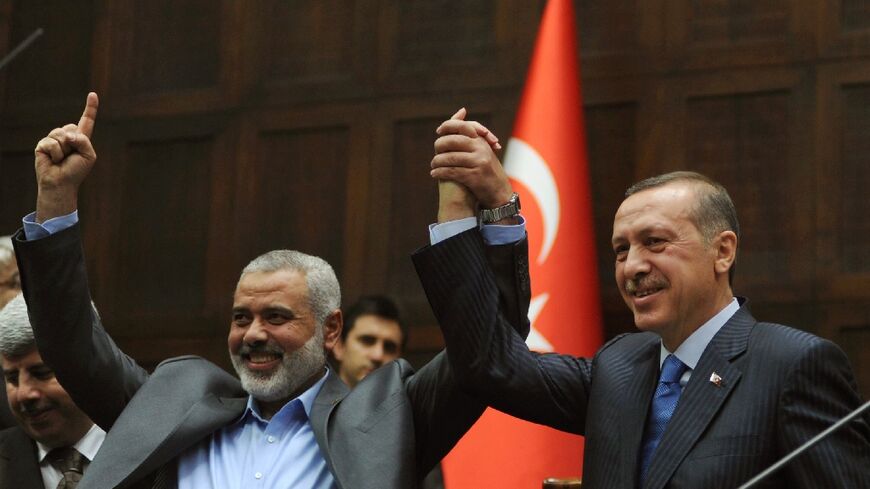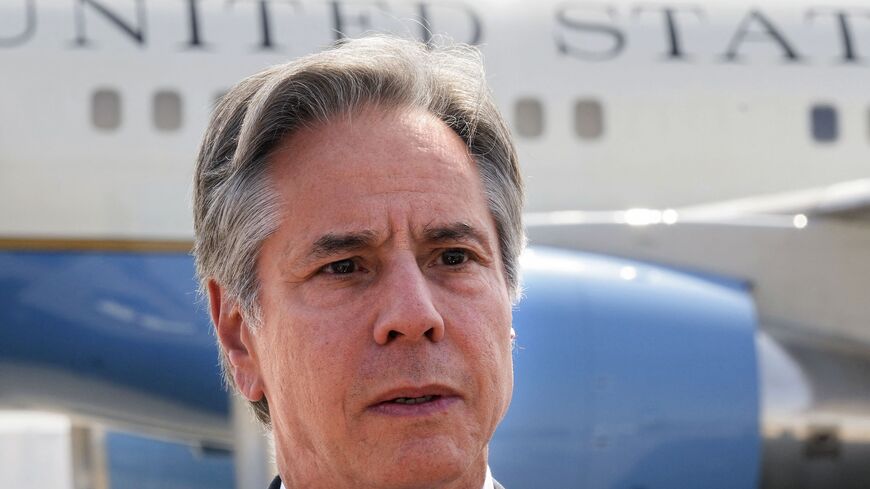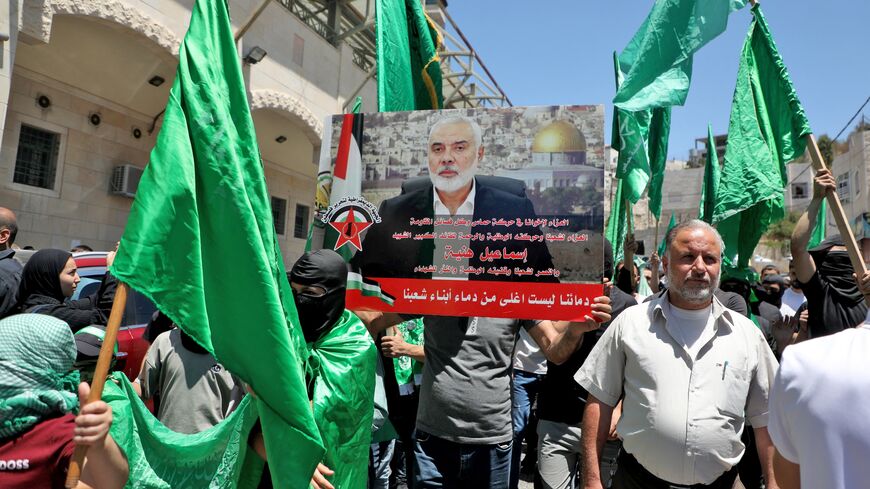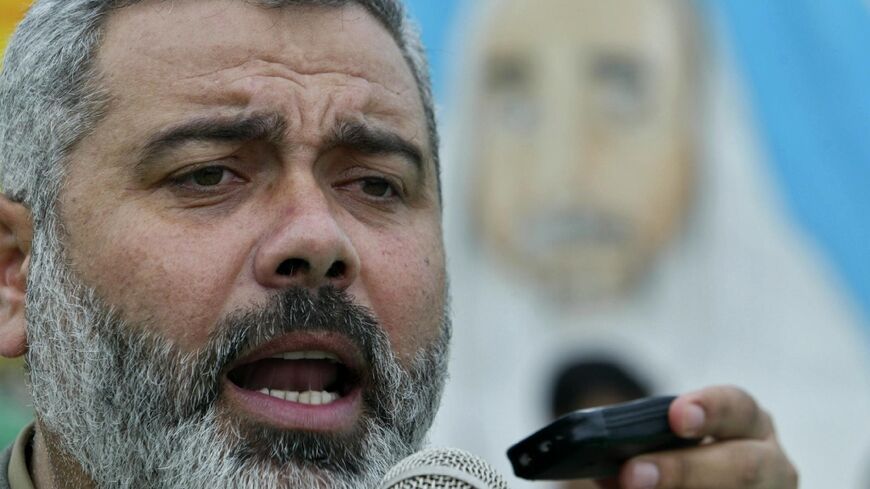Hamas chief Ismail Haniyeh killed while visiting Iran
While no party has claimed responsibility, the Gaza-based militant group immediately accused Israel of being behind the killing.

Hamas' top political leader Ismail Haniyeh has been killed in Tehran, the Palestinian faction said in a statement released early Wednesday morning.
The residence where Haniyeh was staying in northern Tehran “was hit by an airborne projectile” at around 2 a.m. local time, Iran’s official Islamic Republic News Agency reported.
Further investigations are seeking more details, “especially” to establish the “position from which the projectile was fired,” the agency said.
No party has claimed responsibility for the attack. Hamas blamed Israel for what it described as a "treacherous raid" on his residence in Tehran.
Israeli media outlets reported that Prime Minister Benjamin Netanyahu had instructed cabinet ministers to refrain from commenting on the killing.
Prior to the statement by Hamas, Iran's Islamic Revolutionary Guard Corps said Haniyeh and his bodyguard had been killed in his residence in the Iranian capital. Haniyeh was in Tehran for the inauguration of Iranian President Masoud Pezeshkian.
The IRGC said an investigation was underway.
Iran’s Supreme National Security Council met at Supreme Leader Ayatollah Ali Khamenei’s residence Wednesday, the New York Times reported, citing two Iranian officials. The council is the highest strategic decision-making body in Iran and reports directly to Khamenei.
Haniyeh had met with both Pezeshkian and Khamenei on Tuesday.
The killing came less than a day after an Israeli drone strike hit the southern suburbs of Lebanon’s capital, Beirut, targeting a Hezbollah commander. The Israeli military said the strike had killed Fuad Shukr, who headed the military operations of the group and Hezbollah's precision missile project.
Hezbollah released a statement early Wednesday confirming that Shukur was in the building that was targeted by Israel on Tuesday evening.
However, the group did not confirm his death, saying it is still assessing his fate “so that the necessary action can be taken.”
Palestinian President Mahmoud Abbas "strongly condemned" the killing, calling it "a cowardly act and a serious escalation," according to a statement from the president's office. He declared a day of mourning.
Haniyeh had spent much of his time in exile in Qatar as the head of Hamas' political bureau, acting as a top liaison for Hamas with Iran. In April, an Israeli airstrike killed three of Haniyeh's sons in the Gaza Strip.
Haniyeh will be buried in Qatar after a funeral service in the Iranian capital, the Associated Press reported, citing high-level Palestinian officials. Hamas said in a statement that his body will be transferred to Doha on Thursday, the agency reported.
Hamas vows vengeance
Hamas officials strongly condemned the attack on their leader, vowing revenge.
“This assassination by the Israeli occupation of Brother Haniyeh is a grave escalation that aims to break the will of Hamas and the will of our people and achieve fake goals,” senior Hamas official Sami Abu Zuhri said in press statements.
“We confirm that this escalation will fail to achieve its objectives,” he added.
Moussa Abu Marzouk, a member of Hamas’ political bureau, said in a television interview that the killing of Haniyeh was a “cowardly act” and “will not go unanswered.”
The Gaza-based Islamic Jihad, a militant group that has been fighting Israel alongside Hamas since last October, mourned the death of Haniyeh, whom it described as a “great national leader.”
“The heinous assassination carried out by the enemy against a symbol of the resistance will not deter our people from continuing their resistance to put an end to the Zionist criminality that has crossed all boundaries,” the group added in a statement.
In a joint statement, Palestinian factions in the West Bank have called for a general strike and “anger marches” across the Palestinian territories on Wednesday in condemnation of Haniyeh’s assassination.
Iran promises 'harsh' retaliation
Meanwhile, Khamenei said it was Iran’s responsibility to avenge the assassination, vowing “harsh” retaliation.
“With this action, the criminal and terrorist Zionist regime prepared the ground for harsh punishment for itself, and we consider it our duty to seek revenge for his blood as he was martyred in the territory of the Islamic Republic of Iran,” he was quoted as saying in a statement published by IRNA.
Iranian Foreign Ministry spokesperson Nasser Kanaani expressed his country’s condolences over Haniyeh’s assassination, stressing that his “blood will never be wasted.”
In a statement carried by IRNA, Kanaani praised Haniyeh as a “tireless fighter” who dedicated his life to fight Israel and liberate Palestine.
“The martyrdom of Ismail Haniyeh in Tehran will strengthen the deep ties between the Islamic Republic of Iran and the dear Palestine and [the] resistance,” he added.
Iran declared three days of mourning for the slain Hamas leader.
Iran proxy reactions
Iran-backed groups in the region joined the chorus in condemning Haniyeh’s assassination. In a long statement, Hezbollah praised Haniyeh as a “great resistance leader” who stood up to “the US hegemony project and the Zionist occupation” for the Palestinian cause.
His death, the statement added, will increase “the resistance’s determination to continue on the path of jihad” and will make “their resolve stronger in confronting the Zionist enemy, the killer of women and children, the perpetrator of genocide in Gaza and the usurper of the land of Palestine and the sanctities of the nation.”
Yemen’s Houthi rebel group denounced the assassination as a “terrorist crime.”
“Targeting him is a heinous terrorist crime and a flagrant violation of laws and ideal values,” Mohammed Ali al-Houthi, a member of the Houthis’ political bureau, wrote on X.
Meanwhile, the head of the Houthis' Supreme Political Council in Yemen, Mahdi al-Mashat, expressed his condolences to the Palestinian people and Hamas over Haniyeh’s death. He also announced a three-day mourning period and the lowering of flags in Haniyeh’s honor, according to the Yemeni Saba news agency.
The Iran-backed Houthis have been launching repeated missile and drone attacks at commercial vessels in the Red Sea in support of Hamas in its war with Israel.
Reactions from further afield
US Secretary of State Antony Blinken distanced the United States from the assassination on Wednesday. “This is something we were not aware of or involved in,” Blinken told Channel News Asia during a visit to Singapore, according to a transcript shared with journalists by his aides.
His remarks came in response to a question about what impact assassination would have. “It’s very hard to speculate,” Blinken added.
Blinken also spoke with Qatari Prime Minister and Foreign Minister Mohammed bin Abdulrahman Al Thani, according to State Department officials.
Qatar, which had been Haniyeh’s residence since 2019, strongly condemned his assassination, calling it a “heinous crime, a dangerous escalation and a flagrant violation of international and humanitarian law.”
In a statement, the Qatari Foreign Ministry warned that the “reckless Israeli behavior” will drag the region into further chaos and undermine any chances of achieving peace.
The ministry stressed “Qatar's firm position rejecting violence, terrorism and criminal acts, including political assassinations, regardless of the motives and reasons.”
Turkish President Recep Tayyip Erdogan strongly condemned the assassination, calling it “a despicable act” aimed at disrupting the “righteous struggle."
“We will continue to support our Palestinian brothers with all our means and all our strength," he added in a post on the X platform.
The attack was widely condemned by other Turkish government officials including Foreign Minister Hakan Fidan.
In Russia, the Kremlin also condemned the killing. "We believe that such actions are directed against attempts to restore peace in the region and could significantly destabilize an already tense situation," Kremlin spokesperson Dmitry Peskov told reporters.
China warned that the assassination could lead to “further instability in the regional situation.”
“We are highly concerned about the incident and firmly oppose and condemn the assassination,” Foreign Ministry spokesperson Lin Jian said in a statement.
This developing story has been updated since initial publication.







